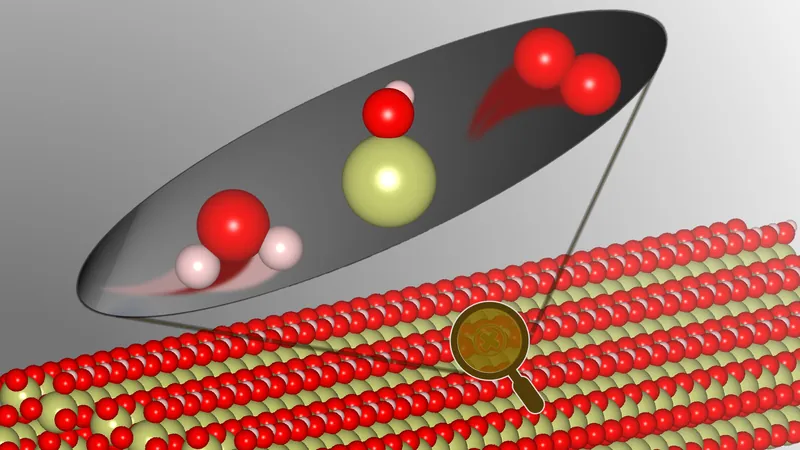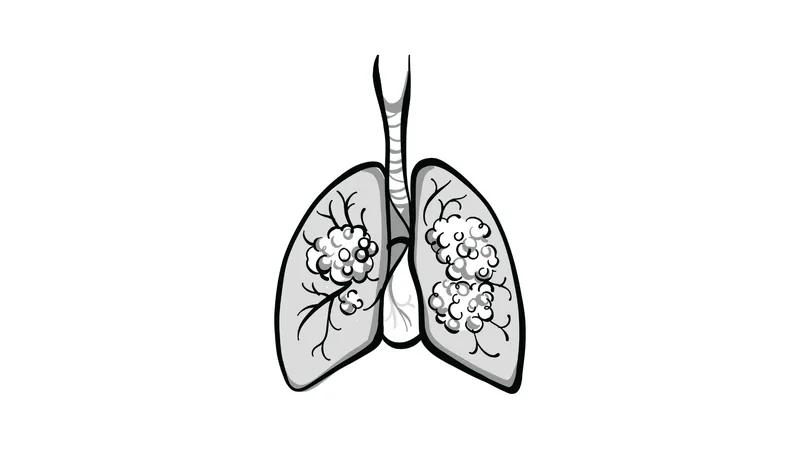
A Game-Changer in Green Hydrogen Production: Catalyst Breakthrough Reveals Simultaneous Reactions
2025-07-07
Author: Arjun
Revolutionizing Oxygen Evolution in Water Electrolysis
Oxygen evolution might be one of the biggest hurdles in the quest for efficient green hydrogen production, typically seen as an energy-intensive process in water electrolysis. For years, scientists have been operating under the assumption that this critical reaction unfolds in distinct, sequential steps. But a groundbreaking study from Prof. Dr. Kai S. Exner and his team at the University of Duisburg-Essen is shaking things up!
A Paradigm Shift in Catalysis Understanding
Published in *Nature Communications*, the research reveals that the traditional understanding of reaction mechanisms does not always hold true. Instead of the usual sequential process, Exner’s findings suggest that certain solid catalysts can facilitate oxygen evolution in a simultaneous manner. This revelation is set to redefine how solid catalysts are developed for more effective energy conversion and storage.
Understanding Catalysts: Homogeneous vs. Heterogeneous
Catalysts come in two major types: homogeneous and heterogeneous. Homogeneous catalysts exist in the same phase as the reactants, while heterogeneous catalysts, like solid materials, interact with liquids or gases. The conventional approach to solid catalysts has been to assume that reactants bond to the catalyst surface, react, and then release the final products one after the other—a linear process.
The Iridium Dioxide Breakthrough
The study focuses on iridium dioxide (IrO₂), an anode material for generating green hydrogen. Unlike previous assumptions, the study highlights that IrO₂ behaves more like a homogeneous catalyst in oxygen evolution. It operates through a 'Walden-like mechanism,' where adsorption and desorption occur simultaneously, mirroring the behavior observed in liquid-phase catalysts.
Implications for Future Research and Development
This significant discovery not only challenges established notions but also opens up exciting avenues for enhancing solid catalysts. By aligning the principles of solid catalysts more closely with those of homogeneous processes, researchers could potentially create more efficient methods for hydrogen production.
Collaboration Sparks Innovation
Exner's groundbreaking work is backed by collaborative projects across the University of Duisburg-Essen and the University Alliance Ruhr, including the Natural Water to Hydrogen initiative led by Prof. Dr. Corina Andronescu and the Collaborative Research Center 247 on Heterogeneous Oxidation Catalysis. These collaborative efforts are critical for driving innovation in this vital field.
With the energy landscape rapidly evolving, breakthroughs like this could be the key to a sustainable future powered by green hydrogen!




 Brasil (PT)
Brasil (PT)
 Canada (EN)
Canada (EN)
 Chile (ES)
Chile (ES)
 Česko (CS)
Česko (CS)
 대한민국 (KO)
대한민국 (KO)
 España (ES)
España (ES)
 France (FR)
France (FR)
 Hong Kong (EN)
Hong Kong (EN)
 Italia (IT)
Italia (IT)
 日本 (JA)
日本 (JA)
 Magyarország (HU)
Magyarország (HU)
 Norge (NO)
Norge (NO)
 Polska (PL)
Polska (PL)
 Schweiz (DE)
Schweiz (DE)
 Singapore (EN)
Singapore (EN)
 Sverige (SV)
Sverige (SV)
 Suomi (FI)
Suomi (FI)
 Türkiye (TR)
Türkiye (TR)
 الإمارات العربية المتحدة (AR)
الإمارات العربية المتحدة (AR)